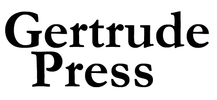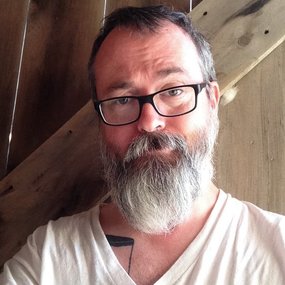Michael Thomas Ford, the Gertrude interview
Is Gay Culture Being Mainstreamed or Erased?
|
Tammy Lynne Stoner was on a panel with acclaimed writer Michael Thomas Ford at this year's Saints & Sinners conference, where one of the hot topics was the shape of queer publishing today. They chatted more about it later... Q: This question came up during our panel, and you had some great insights, so I'd like to ask you again: Who do you think is defining what gay literature is today? I’d like to say that the people defining gay literature are the ones who are making it. Unfortunately, literature is a product, and like any product, the ones defining it end up being the ones bringing it to the marketplace and packaging and selling it to consumers. This isn't always the case, of course. There is also a thriving world of literature and art of all kinds that has nothing to do with the larger culture—a world that exists as its own thing, independent of sales and reviews and money, but if we’re talking about gay literature in terms of the broader world of books being sold to consumers and evaluated alongside other books, we are informed by who is telling us that these books best represent gay literature. These people are the people reviewing the books, choosing which books will be sold in stores, and recognizing selected books with awards. Oftentimes, these gatekeepers are not gay themselves, which means a lot of the defining is being done by people from outside the community. Q: Is it "enough" nowadays to write "just" for our community? For many gay artists creating art about the gay experience--whatever that is, it’s not enough to be recognized just within the gay community. We want to be acknowledged by everyone else as well. For instance, a writer might feel that it’s not enough to win a Lambda Literary Award or a Stonewall Book Award because it’s “just” a gay award. It’s not enough to be recognized by your peers or recognized as one of the best books within the genre we call gay writing. You want to be recognized by the people who choose the National Book Awards, or whatever your personal benchmark of success is. You want to be written about by the New York Times, not only the magazines and websites and review journals geared towards the queer community. On one hand, I understand this. On the other, I often wonder why being recognized within our own subculture isn’t enough. |
...books in which gay people are portrayed in a tragic fashion ... are the stories we’re allowed to have—the ones where we are acceptable subjects to the gatekeepers of the literary world. Q: What is your experience with the presence of queer books in the mainstream market?
What I’ve seen is that one or two books will be singled out as being “the” gay books of a current publishing season—and usually it isn’t other gay writers or reviewers or cultural voices who declare that these books are the most interesting, or noteworthy, or thought-provoking. One book or one writer will—for whatever reason—captivate the literary establishment, and suddenly that book is touted as “the” book about the gay experience, and its author showered with praise. Like we’re only allowed one version of our lives at a time, and it’s the one that non-gay people find the most compelling. Or, more often, the most depressing, because what I see a lot of is praise for books in which gay people are portrayed in a tragic fashion, books in which being gay is a terrible struggle filled with depression and addiction and sadness. Those are the stories we’re allowed to have—the ones where we are acceptable subjects to the gatekeepers of the literary world. It’s also important to note that when the larger literary world refers to “gay literature,” they still generally mean books written by and about white gay men of a certain socioeconomic status. Books by and about queer people of color, and particularly books by and about lesbians of all backgrounds, continue to struggle to get noticed. Those voices are still dangerous. People fear giving them the chance to speak because they fear what they have to tell us, both about their experiences and about ourselves and the roles we play in those experiences. |
Q: Do you think the mainstreaming of gay culture should be more accurately called the erasing of gay culture?
This ties into what I said before about it being easier—not easy, but easier—for books by white, gay male authors and about white, gay male characters to get notice from the larger literary community. White, gay male culture has been adopted in all kinds of ways by the larger cultural community. We’re on TV. We’re in magazines. We’re everywhere. But it’s a certain version of us that’s acceptable: the funny, cute, white, non-threatening version that wants to be “just like everyone else.” In many ways, we’ve been neutered to make us acceptable. Lesbian culture is another example. The butch/femme subculture that Leslie Feinberg wrote about so powerfully in STONE BUTCH BLUES isn’t what most non-queer people think of when they think about lesbian culture. They think about THE L WORD, which doesn’t represent the lives of many of the lesbians I know. Gay culture of all kinds gets de-politicized, whitewashed, and reworked until it’s a palatable expression of this mythical “gay experience” that wider audiences can experience and think they understand us in all our many forms. Now, I say all of this as a 48-year-old, white, gay man whose gay-themed novels are about other white, gay men. I’m very aware that who I am and what I write about has made it easier for me to get my work out there. And I’m very much aware that the success of my books is in no small part due to the way they’ve been packaged, a way that has made them be taken less seriously than maybe I would like, but that’s something I agreed to because I did want them to find a wider audience within the gay community. I have no complaints, but I'm also aware of the way my novels are perceived by the larger literary world because I chose to do it this way. Gay art used to be dangerous and exciting. It questioned a lot of what was being presented as desirable: monogamy as the best relationship model, for example. I also came of age at a time when AIDS was devastating our community. The art coming out of that was angry, political, subversive. Then our political focus turned to gay marriage, and things started to become more tame, because we wanted to be perceived as safe. And it worked—but, I wonder, at what cost to our artistic community? |

